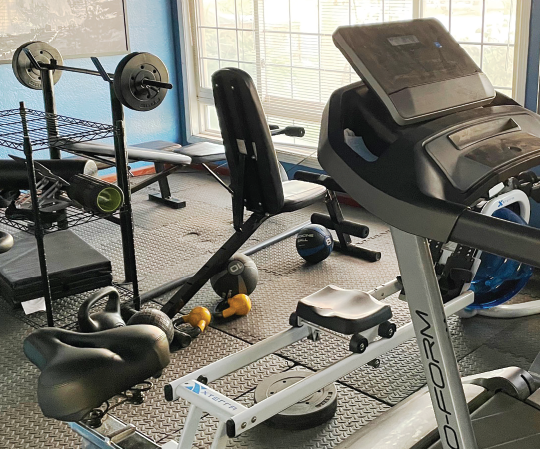A walk is not just good for your body, it’s also good for your soul. Physical activity, like walking, is one of the best ways to reduce stress and boost your mood. However, reports show walking rates are declining steadily in the United States.
On average, 1 out of every 4 U.S. adults sits for longer than eight hours each day, per research from the Centers of Disease Control and Prevention, which can have negative consequences on physical and mental health. Regular exercise improves mood, boosts energy and can even help you sleep better. Staying active is one of the best ways to keep your mind and body healthy.
Consider this advice from the American Heart Association, which has worked for decades to promote policies and strategies that make it easier for communities to get and stay active. One example is National Walking Day, established by the organization to encourage people to move more throughout the day so they can feel, think, sleep and live better.
Indeed, adding more movement can benefit your body and mind in numerous ways, such as:
Lowering disease risk
Getting the recommended amount of physical activity (at least 150 minutes of moderate, 75 minutes of vigorous or a combination of those activities per week) is linked to lower risk of diseases, stronger bones and muscles, improved mental health and cognitive function and lower risk of depression, according to the U.S Department of Health and Human Services.
Increasing sunlight exposure
Outdoor exercise is an easy way to get moving and take in the sunlight, which can improve mood, boost immunity and help you get some vitamin D. Spending time outdoors is a no-cost option and has been shown to reduce stress, promote a sense of belonging and improve mood.
Improving cognitive and mental function
Physical activity keeps your mind sharp now and later. Studies show higher fitness levels are linked to better attention, learning, working memory and problem solving. What’s more, a study published in the “British Journal of Sports Medicine” shows people who get the recommended amount of physical activity are less likely to develop depression.
Living longer
Healthy life expectancy can be positively impacted by increasing activity. According to research published in the “American Journal of Epidemiology,” swapping just 30 minutes of sitting with low-intensity physical activity reduced risk of death by 17%.
Get moving to reduce your stress and step into better health. Learn more at heart.org/movemore.
Get Inspired to Get Moving
A little creativity can go a long way to make your walk more fun. You might think of walking as a solo activity, but a companion makes it even more enjoyable. Ask colleagues, friends or family to join you.
A walk is a perfect excuse to take a break from a long day at your desk. If you work remotely, take a conference call on the go or plan your walk as a reward for completing a project.
Use your walk as a guilt-free opportunity to listen to a new audiobook or create a walking soundtrack of your favorite upbeat music.
Mix up your scenery
Taking new routes keeps your walks interesting and helps prevent boredom from traveling the same predictable path.
If you need an extra nudge to get moving, a pet may help you get fit. Dog parents are more likely to reach their fitness goals than those without canine companions. In fact, according to the “Journal of Physical Activity & Health,” dog parents are 34% more likely to fit in 150 minutes of walking a week than non-dog owners. Pets can also help lower stress, blood pressure, cholesterol and blood sugar and boost your overall happiness and well-being.







